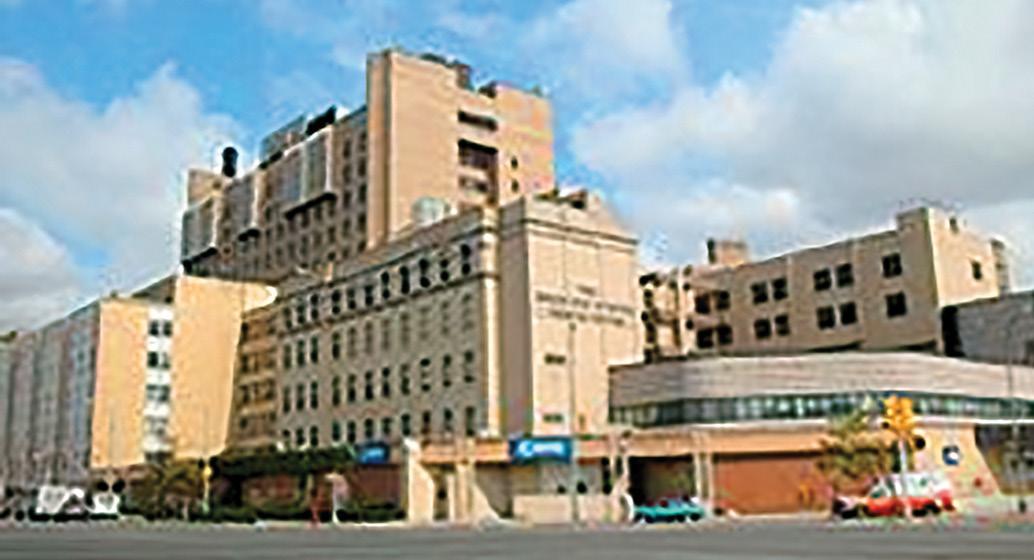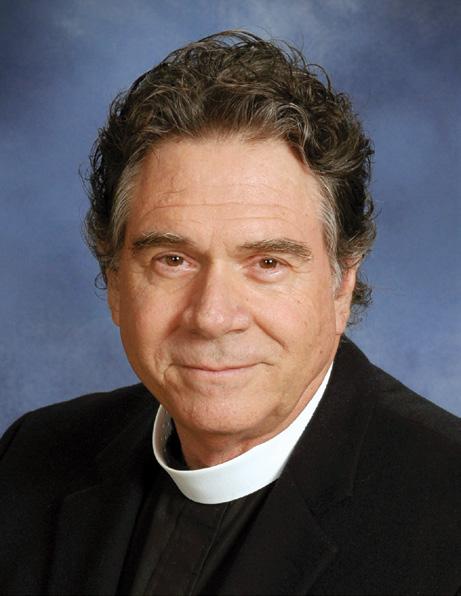
3 minute read
OUR ANGLICAN HERITAGE
Charismatic Anglicanism Has Lasting Influence
For centuries, the in tongues, raising their hands in is that both are vehicles that God difference of opinion worship and operating in the gifts uses to manifest the life of His Son in theology has of the Holy Spirit as described in 1 in us and around us, so that when caused numerous Corinthians 12:8-10: “utterance of we come to the table to receive the splits and factions in wisdom,” “utterance of knowledge,” bread and wine, Jesus is revealed,” the Christian community. For “faith,” “gifts of healing,” “working of said The Rt. Rev. Gregory O. the past 60 years, a blending of miracles,” “prophecy,” “discernment Brewer when interviewed recently theologies and ideals has created of spirits,” “various kinds of for a podcast. a unique movement: charismatic Anglicanism. Episcopalian Dennis Bennett is viewed as one of the charismatic tongues” and “interpretation of tongues.” By contrast, the Anglican faith is steeped in rich sacramental traditions. “Not only is Jesus revealed,” Brewer continued, “I also see myself in a different way as the recipient of what it is that Jesus is giving. And I movement’s early influencers in “What sacramental life and not only see myself as the recipient, America. In 1960 during his time charismatic life have in common but the steward, even as He is as rector of St. Mark’s giving Himself so freely Episcopal Church in Van to me through bread and Nuys, California, Bennett wine. And I receive that astonishingly announced gratefully as a member of one Sunday morning His body that is supposed that he had received the to flow through me into outpouring of the Holy the lives of the people Spirit. that God sends my way. More recently in the United Kingdom, the charismatic movement within the Church of England has firmly taken hold. London’s Holy Trinity Brompton has been influential locally It also shapes the way I see the world, how I pray. All of that is the work of the sacramental life. The same at the baptism, and the same is true for the manifestation of the Spirit. in the movement. And “I really see them in current Archbishop of some ways as seamless, Canterbury Justin Welby which is why I believe a has been widely considered charismatic, sacramental charismatic for years. evangelical church forms Combining the liturgical traditions of the Anglican Church with charismatic Christianity may seem something in us that is incomplete without all of those components,” Brewer said. unlikely. Charismatics are Although many believe widely known for speaking the charismatic movement began around 1960, a turning point in Pentecostalism can be traced back to the Azusa Street Revival in Van Nuys, California, in 1906. There, people witnessed the manifestation of God’s hand instantly and spontaneously moving in individuals, something that, although often the source of controversy, is still seen today. Brewer said he experienced much of the same in 1970 at a charismatic conference where he witnessed firsthand the gifts of the Spirit: speaking in tongues, interpretation, prophetic words and effusive worship with genuine joy. He said the event “was the beginning of a different way of thinking about life.”
Advertisement
A few decades after the Azusa Street Revival, two organizations— The Order of St. Luke and Alcoholic Anonymous (AA)—were formed based on the belief that God could change someone’s life. The Order of St. Luke was created in 1932 by The Rev. John Gaynor Banks, an Episcopal priest, as a healing ministry. The Rev. Sam Shoemaker, also an Episcopal priest, ministered to founding members of the fledgling AA, formed in 1935, to help those suffering from alcoholism. Both organizations still exist today.
“Anglicanism has been involved in renewal in some sense or another for a long, long time. The open door was the healing ministry,” said Brewer. “We’ve always had room within Anglicanism, even in our most cessationist Reformed moments, to see God operate, particularly through the power of prayer.”










